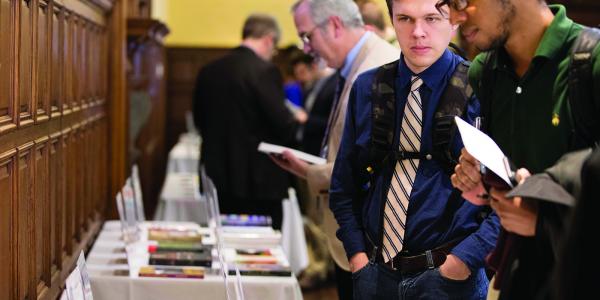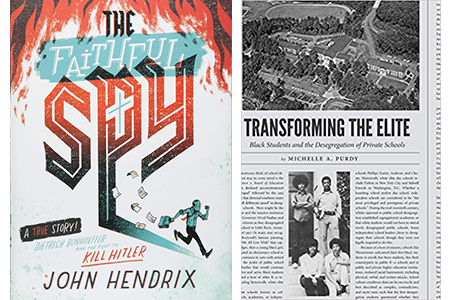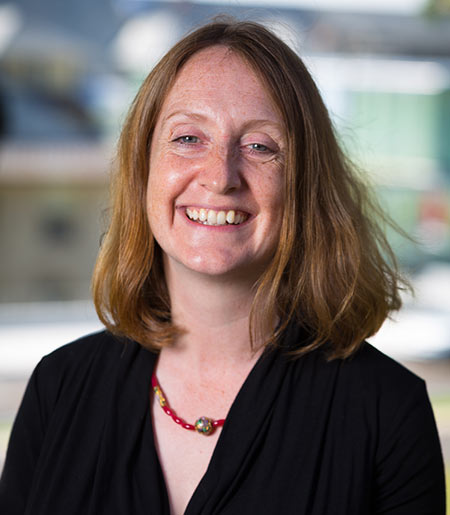“Sustainable Forms: Routine, Infrastructure, Conservation” - Faculty Book Celebration 2018-19
Literary and cultural studies have long prized moments of rupture and resistance. But as neoliberal economics undoes prospects of secure work, and as fossil fuels radically disrupt longstanding ecosystems, it seems increasingly clear that we need not more radical disruption but more stability. This talk asks how we might best support and sustain collective life over time. It turns to the tools of formalist analysis to sketch out some arrangements of space and time, some organizations of power and resources, some patterns of distribution and conservation, that are more supportive of the common good than others. It turns to forms we’ve often mistrusted or dismissed—forms of the everyday that keep life going over time and so have been called conservative — to articulate an aesthetics of building and making for a sustainable future.
ADDITIONAL FACULTY SPEAKERS
John Hendrix
Associate Professor of Art
The Faithful Spy: Dietrich Bonhoeffer and the Plot to Kill Hitler
Michelle Purdy
Assistant Professor of Education
Transforming the Elite: Black Students and the Desegregation of Private Schools
ABOUT THE KEYNOTE SPEAKER
Caroline Levine has spent her career asking how and why the humanities and the arts matter, especially in democratic societies. She argues for the understanding of forms and structures as crucial to understanding links between art and society. She is the author of three books, The Serious Pleasures of Suspense: Victorian Realism and Narrative Doubt (2003, winner of the Perkins Prize for the best book in narrative studies), Provoking Democracy: Why We Need the Arts (2007), and Forms: Whole, Rhythm, Hierarchy, Network (2015, named one of Flavorwire’s “10 Must-Read Academic Books of 2015”). She is currently the 19th-century editor for the Norton Anthology of World Literature and has written on topics ranging from formalist theory to Victorian poetry and from television serials to academic freedom. She taught at the University of Wisconsin-Madison before coming to Cornell, where she was co-founder of the Mellon World Literatures Workshop. She is a native of Syracuse, NY.
RELATED PANEL DISCUSSION
“Art and Democracy”
THURSDAY, FEBRUARY 21, 12 PM
Washington University, Olin Library, Room 142
Moderated by Ignacio Infante (Romance Languages & Literatures) and featuring
- Caroline Levine (English), Cornell University
- Ignacio Sánchez Prado (Romance Languages & Literatures)
- Rebecca Wanzo (Women, Gender & Sexuality Studies)
- Rachel Greenwald Smith (English), Saint Louis University
Lunch provided
Please RSVP to attend: cenhum@wustl.edu



